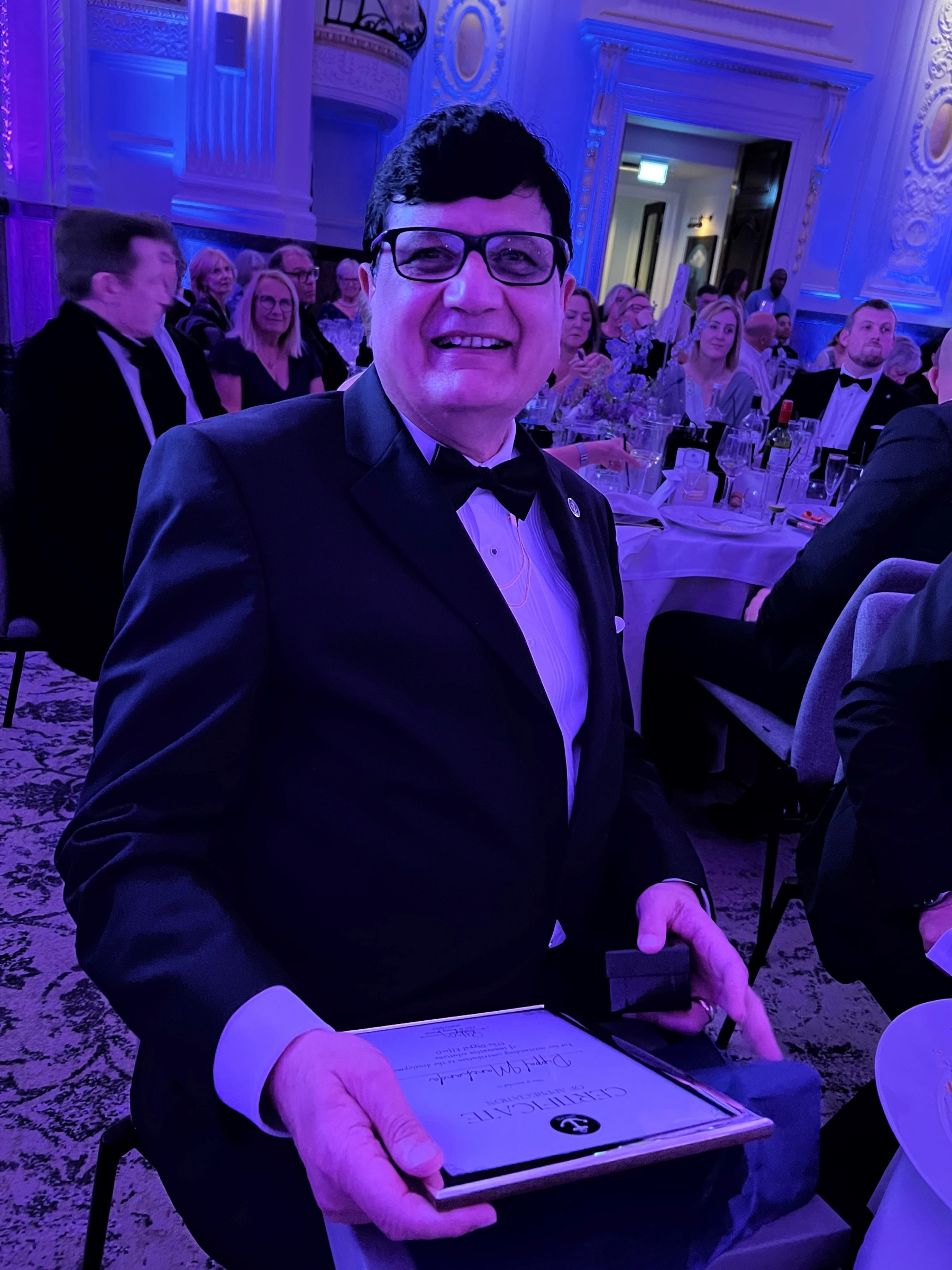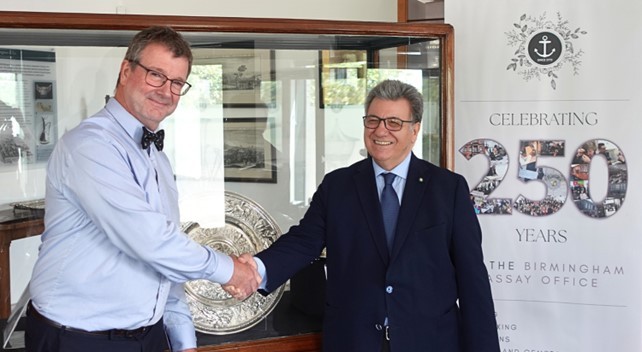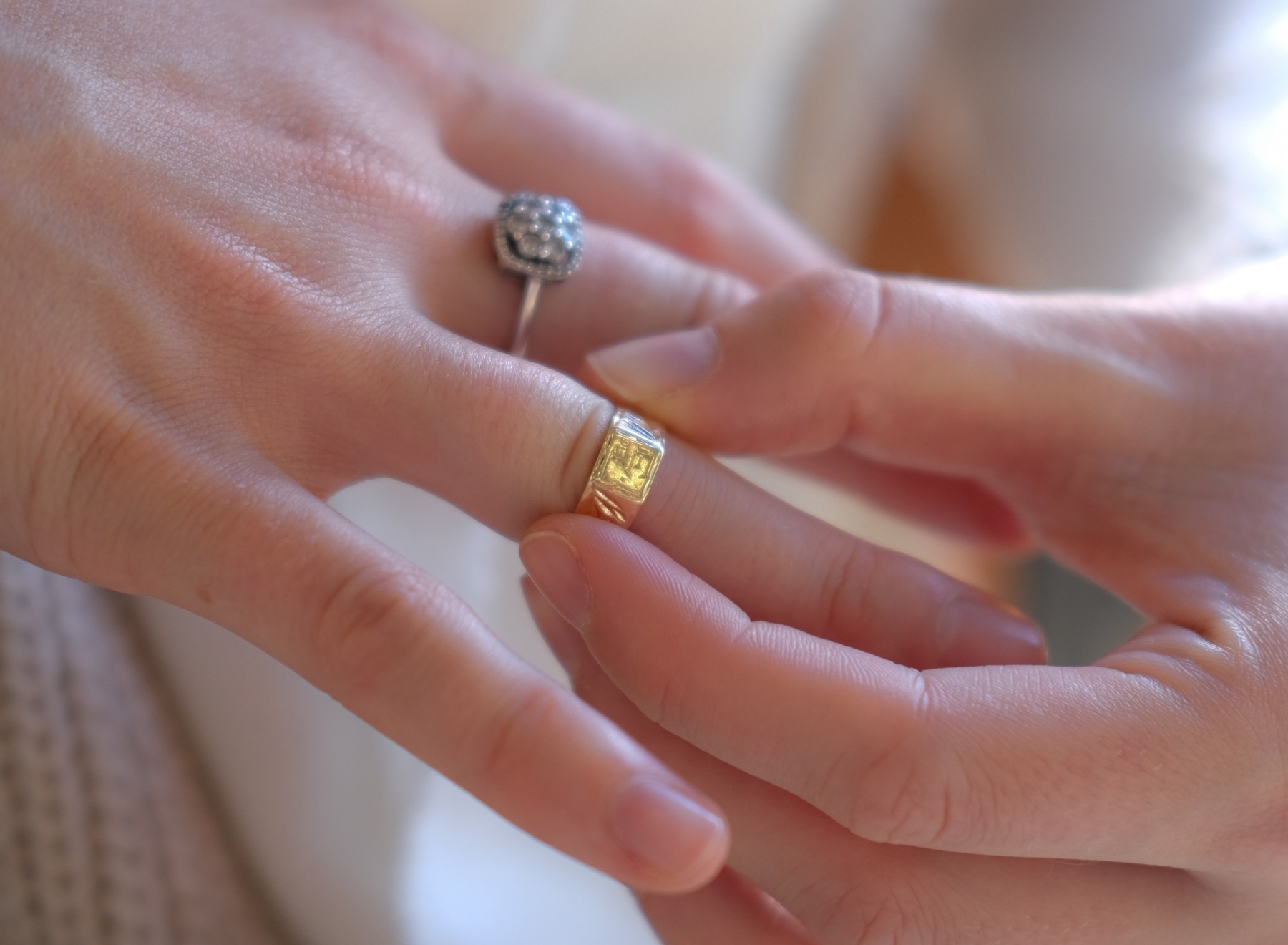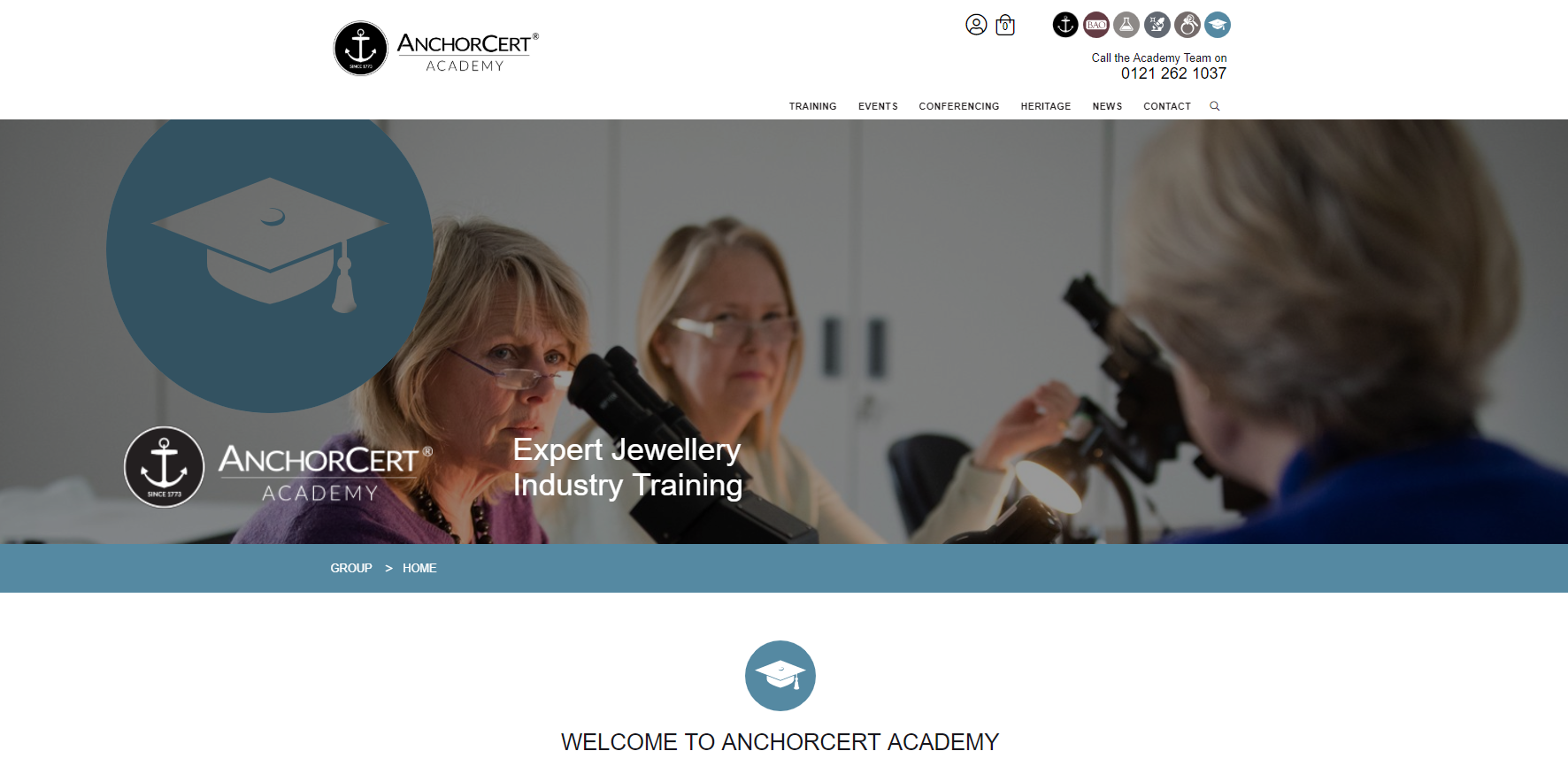 This beautiful and delicate gold, amethyst and pearl necklet was advertised for sale in a Christmas catalogue published by the famous Birmingham firm of Elkington. The catalogue, and several others from Elkington, are held in the Birmingham Assay Office library and although it is undated, the style of some of the products that are advertised and the clothes that the man and woman are dressed in on the front of the catalogue suggest a date of around 1910-1920.
The necklet was priced at £2, 10 shillings and it is a really representative piece of the type of gold jewellery that made Birmingham's Jewellery Quarter world-famous in the 19th and 20th centuries. The sinewy, curved lines of this piece show the influence of European Art Nouveau, which had become fashionable in jewellery by around 1905 onwards.
Elkington & Co, which was based opposite the Assay Office in Newhall Street, was founded in the 1830s by Josiah and George Richards and their nephew George Richards Elkington. The company is perhaps best known today for its grand, high Victorian style electroplated silver products, but it also sold jewellery. The huge Elkington factory was demolished but a Blue Plaque commemorates the spot where it stood today.
This catalogue features brooches set with semi-precious stones and pearls (with one of the most affordable pieces being a pearl flower brooch priced at 11 shillings, six pence) and more expensive jewellery such as a necklet pendant set with rubies and diamonds priced at £24, 10 shillings. Gentlemen (or their wives looking for the perfect gift) might be tempted by the range of watches and tie pins for sale. Other Christmas gifts highlighted in the catalogue include an inlaid mahogany clock in the Art Nouveau style, elegant cufflinks and two delightful glass decanters in the shape of a pig and a dog with silver collars. Two more quirky items include 'The Napoleon' silver card cabinet priced £3, 15 shillings and 'The Full Hand' silver card holder priced at 7 shillings, six pence.
This beautiful and delicate gold, amethyst and pearl necklet was advertised for sale in a Christmas catalogue published by the famous Birmingham firm of Elkington. The catalogue, and several others from Elkington, are held in the Birmingham Assay Office library and although it is undated, the style of some of the products that are advertised and the clothes that the man and woman are dressed in on the front of the catalogue suggest a date of around 1910-1920.
The necklet was priced at £2, 10 shillings and it is a really representative piece of the type of gold jewellery that made Birmingham's Jewellery Quarter world-famous in the 19th and 20th centuries. The sinewy, curved lines of this piece show the influence of European Art Nouveau, which had become fashionable in jewellery by around 1905 onwards.
Elkington & Co, which was based opposite the Assay Office in Newhall Street, was founded in the 1830s by Josiah and George Richards and their nephew George Richards Elkington. The company is perhaps best known today for its grand, high Victorian style electroplated silver products, but it also sold jewellery. The huge Elkington factory was demolished but a Blue Plaque commemorates the spot where it stood today.
This catalogue features brooches set with semi-precious stones and pearls (with one of the most affordable pieces being a pearl flower brooch priced at 11 shillings, six pence) and more expensive jewellery such as a necklet pendant set with rubies and diamonds priced at £24, 10 shillings. Gentlemen (or their wives looking for the perfect gift) might be tempted by the range of watches and tie pins for sale. Other Christmas gifts highlighted in the catalogue include an inlaid mahogany clock in the Art Nouveau style, elegant cufflinks and two delightful glass decanters in the shape of a pig and a dog with silver collars. Two more quirky items include 'The Napoleon' silver card cabinet priced £3, 15 shillings and 'The Full Hand' silver card holder priced at 7 shillings, six pence.
Your item has been added to the basket
You need to create an account, or login before you can add this item to your basket.







